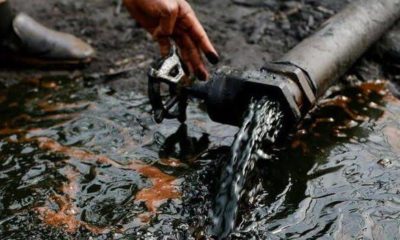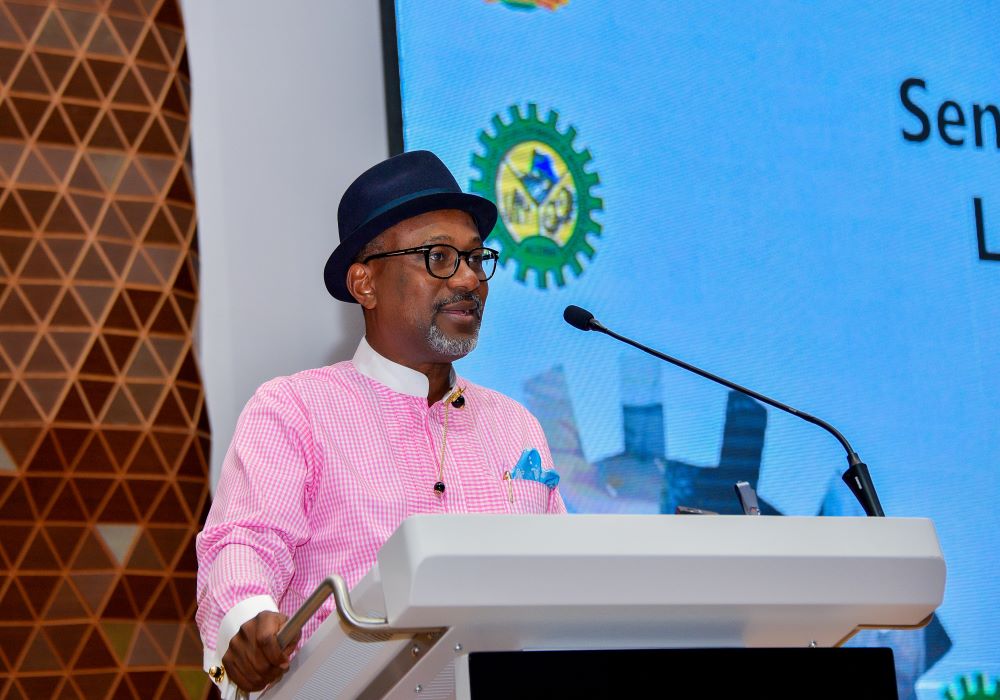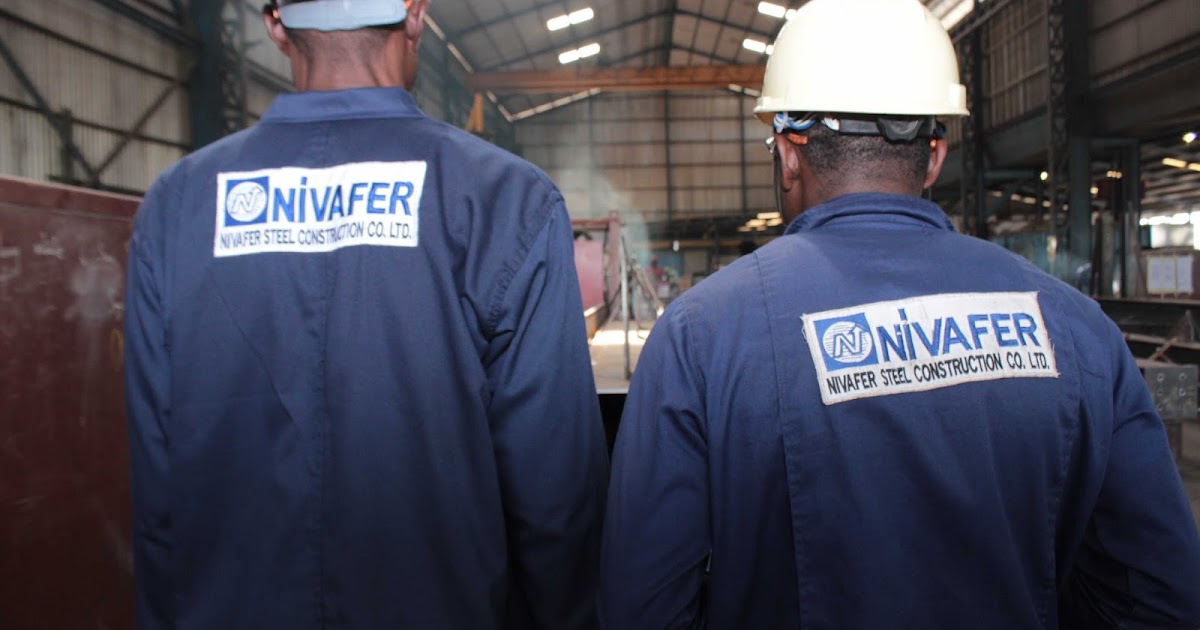Oil
Shell stops downstream investment plan in Nigeria
He opined that Shell no longer considers downstream crude processing a growth area, adding that the company has already saturated its downstream portfolio.
AFTER series of appeals to oil majors and other stakeholders in the oil sector by the Nigerian government, including policy incentives to encourage the rebuilding of the nation’s domestic refining capacity, Shell Petroleum Development Company (SPDC) has announced that it does not have any such investment plans for the country.
According to the company low returns on downstream investments and peculiar situation in some African countries where government regulates prices of petroleum products are parts of the constraints which have necessitated the company’s decision.
The hint was dropped by Mr. Mike Mullier, Shell’s Global Leader, Crude Trading, during a chat with newsmen on the sidelines of the ongoing Africa Energy Week in Accra, Ghana after delivering the company’s presentation.
He opined that Shell no longer considers downstream crude processing a growth area, adding that the company has already saturated its downstream portfolio.
Read also: 2023: Nnamani cautions Tinubu’s wife for castigating Igbos
Some of the fears, he said, had made Shell shut down its downstream operations long ago. He said the company has no intention of expanding it downstream portfolio in Africa where, he said, Shell still retained some refining businesses in few countries.
According to him, the company’s investment direction is currently focused in high profit areas that offer growth opportunities and make adequate returns on investors’ funds.
The statement by Mr. Mullier may have sealed off hopes of visible private investment in domestic refining, given that Shell is Nigeria’s biggest petroleum industry operator and produces nearly half of the country’s 2.5 million barrels per day.
Shell also operates Nigeria’s biggest petroleum assets under joint venture and production sharing agreements with the Nigerian National Petroleum Corporation (NNPC).
The company is always seen as the strategic factor in realizing government’s objectives and its performance spell either failure or success of official policy programmes in the industry given the size and spread of its operations.
The statement also came a week after Akwa Ibom State government declared withdrawal from the highly advertised Amakpe Refinery sited in the state which has been highly rated ahead of over 18 refinery licencees who have not scratched the ground since securing their project approvals.
Read also: Owo Church attack: Military, DSS operatives apprehend 2 more suspects
The chain of investment failures and apathy in the downstream petroleum industry came despite a presidential directive on producers in the country to refine 50 percent of their output in-country.
It has been said that part of the ongoing reforms in the industry and the consequent formulation of the controversial Petroleum Industry Bill (PIB) is to liberalize the downstream sector of the industry to encourage private investment in local refining.
The law is expected to facilitate deregulation of the downstream sector to dismantle state sponsored subsidy and guarantee commercial viability of investments in refining of crude oil.
Oil
FG Introduces New Incentives To Revitalize Nigeria’s Oil & Gas Industry
In a strategic move to revitalize Nigeria’s oil and gas sector, the Federal Government has unveiled two key fiscal incentives aimed at attracting investment and enhancing energy security.
The announcement was made by Mr. Wale Edun, the Minister of Finance and Coordinating Minister of the Economy on Wednesday.
The first initiative, the Value Added Tax (VAT) Modification Order 2024, introduces critical exemptions for essential energy products and infrastructure, including Diesel, Feed Gas, Liquefied Petroleum Gas (LPG), Compressed Natural Gas (CNG), Electric Vehicles, Liquefied Natural Gas (LNG) infrastructure, and Clean Cooking Equipment.
Read Also: Atiku Calls For Rotational Presidency Across Nigeria’s Geopolitical Zones
These exemptions are designed to reduce living costs for Nigerians, promote energy security, and accelerate the transition to cleaner energy alternatives.
The second initiative, the Notice of Tax Incentives for Deep Offshore Oil & Gas Production, offers new tax relief options for deep offshore exploration projects.
This measure aims to position Nigeria’s deep offshore basin as a premier destination for international oil and gas investments, boosting the country’s appeal to foreign investors.
These reforms are part of a broader set of policy initiatives, known as Policy Directives 40-42, endorsed by President Bola Ahmed Tinubu.
The directives reflect the administration’s commitment to fostering sustainable development in the energy sector and enhancing Nigeria’s competitive edge in the global oil and gas market.
Business
Tinubu set to approve ExxonMobil-Seplat oil deal, expands CNG bus initiative

By Yemie Adeoye
NIGERIA’s President Bola Tinubu has announced that the protracted ExxonMobil-Seplat upstream oil divestment will be formally approved by the Minister of petroleum within a matter of days, just as he announced his government’s intention to expand the Compress natural Gas, CNG buses initiative.
The President who stated this during his Independence day nationwide broadcast stated that the move is in line with his administration’s commitment to free enterprise, free entry and free exit in investments which is the hallmark of his administration investment policy.
“Fellow compatriots, our administration is committed to free enterprise, free entry, and free exit in investments while maintaining the sanctity and efficacy of our regulatory processes. This principle guides the divestment transactions in our upstream petroleum sector, where we are committed to changing the fortune positively. As such, the ExxonMobil Seplat divestment will receive ministerial approval in a matter of days, having been concluded by the regulator, NUPRC, in line with the Petroleum Industry Act, PIA. This was done in the same manner as other qualified divestments approved in the sector.”
The President also seized the opportunity to plead with Nigerians to be patient with his administration’s reform policies. “As your President, I assure you that we are committed to finding sustainable solutions to alleviate the suffering of our citizens. Once again, I plead for your patience as the reforms we are implementing show positive signs, and we are beginning to see light at the end of the tunnel”.
“Our energy transition programme is on course. We are expanding the adoption of the Presidential Initiative on Compressed Natural Gas for mass transit with private sector players. The Federal Government is ready to assist the thirty-six States and FCT in acquiring CNG buses for cheaper public transportation.
Fellow Nigerians, while we are working to stabilise the economy and secure the country, we also seek to foster national unity and build social harmony and cohesion. Our economy can only thrive when there is peace”. he enthused.
Oil
ExxonMobil To Invest $10bn In Nigeria’s Deep-Water Oil Operations
As part of the administration’s push to improve Ease of Doing Business (EoDB), Nigeria’s Vice President Kashim Shettima has expressed support for ExxonMobil’s plan to invest $10 billion in the country’s deep-water oil sector.
Speaking on Wednesday, September 25, 2024, during a meeting with ExxonMobil executives at the 79th United Nations General Assembly (UNGA) in New York, Shettima called the investment “a clear testament to the administration’s economic reforms and investor-friendly policies.”
Read Also: Offset Accuses Cardi B Of Cheating During Pregnancy
This announcement follows news that international maritime company DP World intends to develop a multibillion-dollar port project in Nigeria.
Stanley Nkwocha, Senior Special Assistant to the President on Media and Communications, shared the development in a statement on Wednesday. He quoted Shettima as saying: “ExxonMobil’s potential investment aligns with the vision of President Bola Ahmed Tinubu’s administration for a more investment-friendly Nigeria.
We are committed to fostering an environment that supports such transformative projects.”Shettima also discussed the administration’s broader efforts to improve the ease of doing business, highlighting the “Renewed Hope Agenda,” which aims to simplify bureaucratic processes, enhance transparency, and offer fiscal incentives to attract global investors.
“Our administration has taken bold steps to unify the exchange rate, remove fuel subsidies, and implement tax reforms. These measures, though challenging in the short term, are intended to create a stable and predictable business environment in the long term,” he added.
On the oil and gas sector, Shettima mentioned that the government is revising the fiscal framework for deep-water operations to attract investment while ensuring fair returns for the Nigerian people.

















